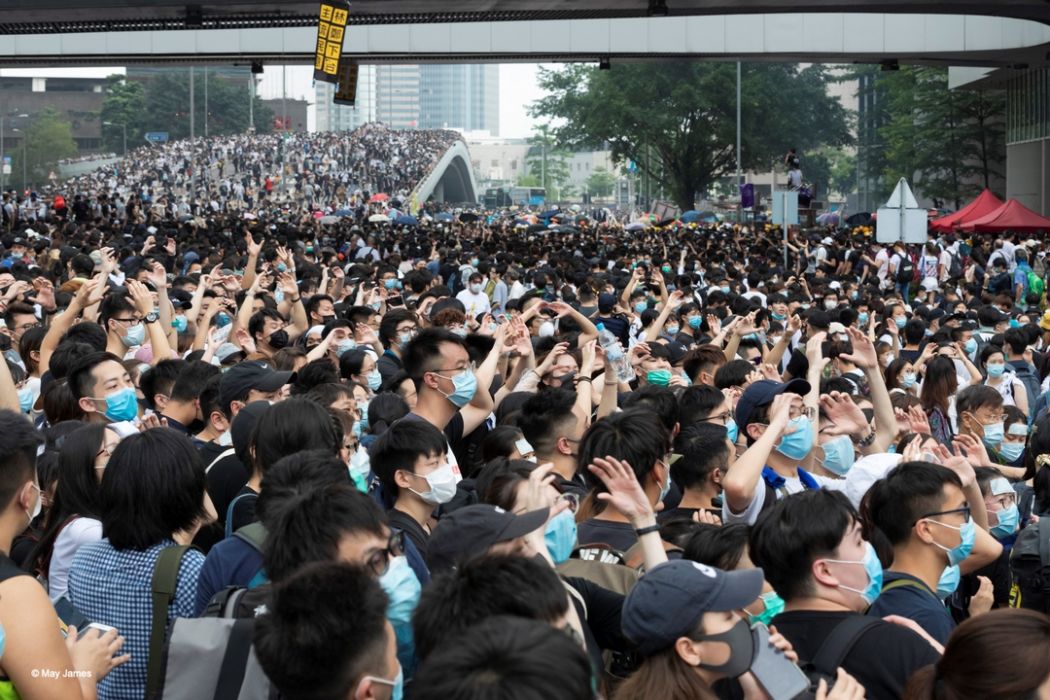The Hong Kong government has released its first Youth Development Blueprint, featuring over 160 measures relating to housing, entrepreneurialism and career development, and nurturing patriotism, designed to help the city’s youth participate in society and reach their potential. However, the city’s largest opposition party has criticised the plan for “repackaging” existing government policies.

Introducing the blueprint at a press meeting on Tuesday afternoon, the Secretary for Home and Youth Affairs Alice Mak said it intended to “nurture a new generation of young people with an affection for our country and Hong Kong, and equipped with global perspective, an aspiring mind-set and positive thinking.”
The blueprint targets those aged between 12 and 39, according to the minister.
“We think understanding the nation is the first step of growing up,” Mak said. Young Hongkongers would be encouraged to establish the concept of nationhood, and correctly understand the country’s history, constitution and the Basic Law, as well as strengthen their sense of nationality from a young age.
Apart from patriotic education, the Youth Development Blueprint also seeks to address young people’s housing and career development needs by rebooting the Starter Homes Project for Hong Kong residents, which offers discounted housing units for first-time homebuyers. The blueprint also aims to increase the supply of youth hostels and support young people to find jobs or start a business in the Greater Bay Area.
‘Old wine in new bottle’
However, Chan Po-ming, the spokesperson on youth affairs for the Democratic Party – Hong Kong’s largest remaining pro-democracy party – said the plan was “largely old wine in a new bottle,” as the blueprint “simply repackaged the government’s existing youth-related work.”

In addition, Chan said in a Tuesday evening press release that the government’s efforts to help Hong Kong talent enter the Greater Bay Area workforce were “self-contradictory.” In his inaugural Policy Address delivered in October, Chief Executive John Lee highlighted the attraction of talent to the city as a priority.
The Greater Bay Area is a conurbation comprising Hong Kong, Macau and nine major cities in Guangdong province that aims to further cooperation between the mainland and the two special administrative regions. The area is expected to support China’s technology innovation and economic development.
In its statement, the Democratic Party suggested the government pardon or provide special opportunities to those who have criminal records as a result of participating in pro-democracy protests, “otherwise the government is not showing its determination to reconcile with [young people].”
Meanwhile, Christa Cheung of the Hong Kong Federation of Youth Groups told RTHK on Wednesday morning that she thought it was important to “implement targeted measures at young people of different social groups, backgrounds or classes,” after coming up with an overarching plan.
Cheung urged the government to take a careful look at equal development opportunities for youth with special educational needs and those from ethnic minorities and less privileged groups. She also said there should be more affordable housing options for the youth to choose from.
‘Every young person’
During Tuesday afternoon’s press meeting, Mak faced multiple questions on the lack of specific plans to reconcile with the participants in the 2019 pro-democracy protests and unrest. A vast number of demonstrators were young Hongkongers.

In response, Mak said the blueprint targeted “every young person in Hong Kong,” and those who had breached the law in the past could benefit from the new measures “as long as they meet the basic, objective requirements.”
“We are trying to make well use of this blueprint to let young people understand and know what the government is trying to do – to help them, to support them,” she said.
Support HKFP | Policies & Ethics | Error/typo? | Contact Us | Newsletter | Transparency & Annual Report | Apps
Help safeguard press freedom & keep HKFP free for all readers by supporting our team

LATEST FROM HKFP
HKFP has an impartial stance, transparent funding, and balanced coverage guided by an Ethics Code and Corrections Policy.
Support press freedom & help us surpass 1,000 monthly Patrons: 100% independent, governed by an ethics code & not-for-profit.










